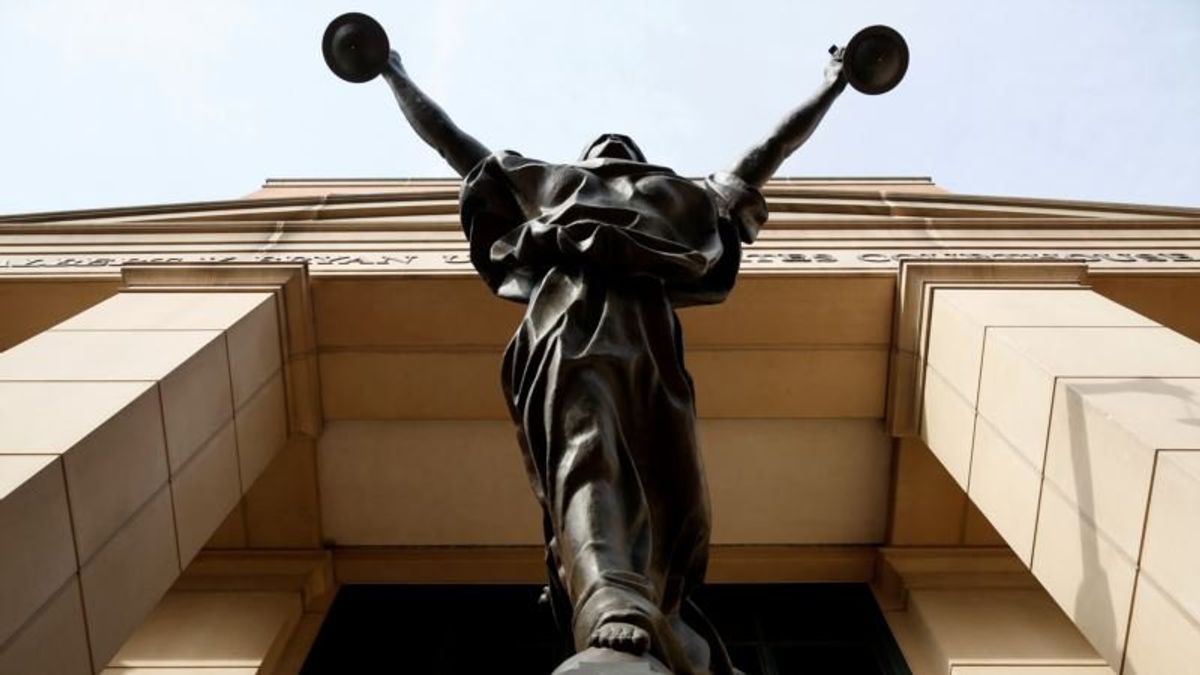
Federal Judges Increasingly Block Presidential Orders
Federal Judges Increasingly Block Presidential Orders

WASHINGTON —
In January, a little-known federal judge in Pennsylvania blocked new Trump administration rules that would have allowed employers to deny women free birth control benefits on religious and moral grounds.
Judge Wendy Beetlestone’s tool? A nationwide preliminary injunction enjoining the Trump administration from enforcing the rules not only in Pennsylvania and New Jersey, the two states suing the government, but throughout the United States.

With the stroke of a pen, Beetlestone, an Obama appointee, blocked a policy albeit temporarily that opponents say could adversely affect the lives of millions of women.
This prompts the question: Should a single judge, one of several hundred appointed to the federal bench, have the power to decide a question of momentous weight for the entire country?
The question is hardly an academic one. A nationwide preliminary injunction, also called a universal injunction, is a court ruling that temporarily prevents a government policy from taking effect while legal challenges make their way through the court system.
Judicial overreach
With federal judges blocking Trump administration policies in unprecedented numbers, Republicans in Congress have denounced the practice as “judicial overreach” and potentially unconstitutional. Moreover, criticism voiced last year by conservative Supreme Court Justice Clarence Thomas that these injunctions are “legally and historically dubious” has sparked speculation the high court might step in to confront the issue.
Judge Beetlestone’s injunction in Pennsylvania v. President of the United States was the latest in a string of 30 handed down by federal judges over the past two years. This has come as Democratic-governed states, civil rights organizations and other activist groups have turned to the courts to challenge the Trump administration on health care, immigration, gender identity rights and a raft of other issues.
By historic standards, the number is staggering even with the safeguards of the appellate courts. Until the 1960s, no court had issued a single nationwide injunction. In subsequent decades before U.S. President Barack Obama took office in 2009, federal district court judges issued an average of 1.5 such injunctions per year.
But the number increased to 2.5 per year under Obama and jumped to a record 20 during President Donald Trump’s first year in office. Both presidents rolled out far-reaching and often controversial policy initiatives on immigration, climate change and other issues through executive action, triggering federal lawsuits by states and other entities.
NOTE: Click on the arrows below for more information
Executive authority
Amanda Frost, a professor at the American University Washington College of Law, said the rapid growth in nationwide injunctions has been fueled by Obama’s and Trump’s expansive use of executive authority.
“We’ve seen both President Obama and President Trump issue executive orders making sweeping changes to our immigration system, for example, to various labor laws,” Frost said. “And these sweeping changes through unilateral executive order — rather than deliberative lawmaking by Congress — is I think part of the problem.”
Not every request for a nationwide preliminary injunction has been granted, however. Last month, a federal judge in Washington, D.C., denied a gun rights organization’s request for a preliminary injunction to block the administration’s ban on bump stocks, a device that accelerates the firing of semi-automatic weapons. And the day before Judge Beetlestone issued her injunction, which is being appealed, another judge in California issued a limited injunction in the same case covering 13 states and the District of Columbia.

Flouting the Constitution
The Justice Department, under both Democratic and Republican presidents, has long argued that federal judges lack the authority to issue nationwide injunctions. Last year, then-Attorney General Jeff Sessions issued guidelines for federal prosecutors involved in cases brought against the government to “make strong and consistent arguments in court against the issuance of nationwide injunctions and to reaffirm the existing constitutional and practical limitations on the authority of judges.”
“This Justice Department has challenged the entry of nationwide injunctions on constitutional as well as equitable grounds, and we will continue to do so at every appropriate opportunity,” Beth Williams, an assistant attorney general, said at a recent Heritage Foundation event on nationwide injunctions.
Outside the Justice Department, nationwide injunctions have sparked a raging policy and constitutional debate over the practice.
To some critics, the practice flouts the Constitution. Samuel Bray, a University of Notre Dame professor of law, has argued that Article III of the U.S. Constitution restricts federal judges’ “judicial power” to deciding “cases for parties, not questions for everyone.”
“That is why for 170 years there were no national injunctions from federal courts,” Bray said during a House Judiciary Committee hearing on nationwide injunctions. “Because the federal courts recognized that giving remedies to non-parties would go beyond the judicial power.’”

Bray and other critics say that nationwide injunctions politicize the judicial system and lead to so-called “forum shopping” by politically motivated groups, encouraging plaintiffs to shop around for a sympathetic judge willing to issue a favorable ruling. Instead, they say, plaintiffs seeking a nationwide injunction can do so by filing a class action lawsuit.
But proponents say nationwide injunctions are sometimes the only means to ensure “complete relief” to a plaintiff and to prevent harm to others who may not be able to bring their own cases before courts.
“You have to look at the specific examples, said Caroline Fredrickson, president of the liberal-leaning American Constitutional Society. “It’s really important for the judges to look at the circumstances and understand that the rulings may be necessary because the law itself is harming so many people beyond those who were specifically plaintiffs in the case.”
 Trump’s Road to Re-Election Paved with Anti-SocialismNext PostSome House Republicans Broke with Party on Omar Resolution
Trump’s Road to Re-Election Paved with Anti-SocialismNext PostSome House Republicans Broke with Party on Omar Resolution






